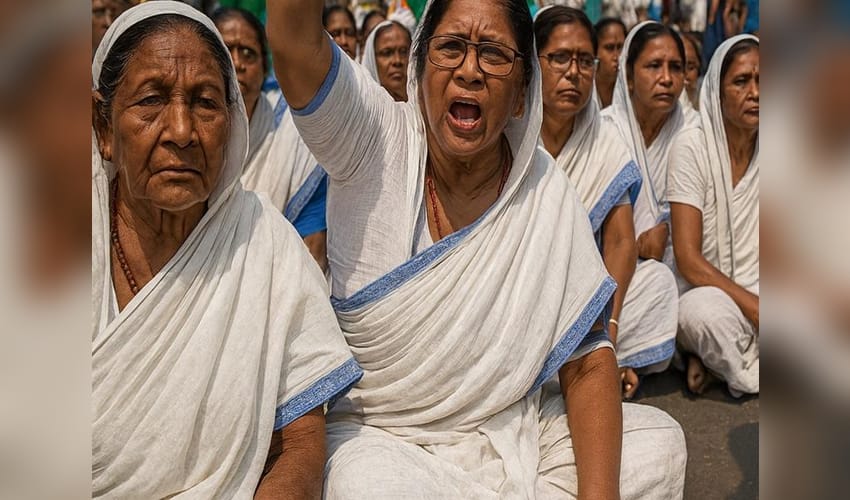Politics
Citizenship concerns among Matua community amid SIR process key issue in poll-bound Bengal
Published On Thu, 27 Nov 2025
Asian Horizan Network
0 Views

New Delhi, Nov 27 (AHN) The contentious citizenship issue of the Matua community has come to the fore again with the Election Commission's ongoing Special Intensive Revision (SIR) of electoral rolls in West Bengal months before the state goes for Assembly election next year.
The state unit of the Bharatiya Janata Party's (BJP) has also approached the EC over the Matuas' concerns and offered suggestions. It has urged the poll body to strengthen the SIR process pointing that West Bengal "poses a challenge not faced in the first phase of SIR in Bihar".
It pointed out "the Matua community, along with other similarly situated Hindu migrants, has expressed growing dissatisfaction due to insufficient clarity on their documentation status" in a letter to the EC on Wednesday, November 26.
The Matua are a socio-religious community of Namashudra Hindus with roots in present‑day Bangladesh.
Millions of them have migrated to India since partition, with a surge in the 1971 war against Pakistan that created Bangladesh. The exodus still continues under the religious persecution they face across the border.
While many of them have assumed Indian citizenship through legal and natural processes, those who have come later are awaiting the status.
There were widespread apprehension and anxiety over rumours floated around National Register of Citizens (NRC), especially when the exercise was undertaken in neighbouring Assam.
Their plight has been politically leveraged during elections since the group is the state’s second largest among Scheduled Caste (SC).
They have usually been seen as supporters of the state's ruling dispensation more for peaceful existence than anything else. However, after the death of its matriarch, various power centres have risen within the community.
There are two distinct groups now, with one owing allegiance to the state's ruling Trinamool Congress and another to the Bharatiya Janata Party (BJP). Union Minister of State Shantanu Thakur's statement -- despite himself being a Matua -- that around 1.2 crore "illegal voters" could be removed from the state voters' list through the SIR process did not go well with fellow community members.
Facing subsequent anxiety and queries, Thakur assured assistance in their quest for citizenship documents through the Citizenship Amendment Act (CAA).
However, the process requires establishing proof of domicile and on religious persecution. The exercise also takes time for the verification of documents and claims presented by an applicant.
Thus, while emphasising on strengthening and streamlining the SIR process, the West Bengal BJP has also stressed on the EC to address the piquant situation faced by the Matua community.
The leaders urged "their concerns need to be proactively addressed through targeted communication. public outreach, and administrative support. Delays or lack of engagement are fostering disillusionment, which must be prevented".
Meanwhile, followers of another Matua group led by Trinamool Congress Rajya Sabha MP and Shantanu's aunt, Mamata Thakur, has launched a protest including fasting against the SIR of voters list.
Her party leader and Chief Minister Mamata Banerjee recently led a protest march and addressed a rally in the Matua heartland of Thakurnagar in North 24 Parganas district.
The Matua movement began in the late 19th century under Harichand Thakur and his son Guruchand, who organised the Namashudra community around a reformist, egalitarian faith and social upliftment.



